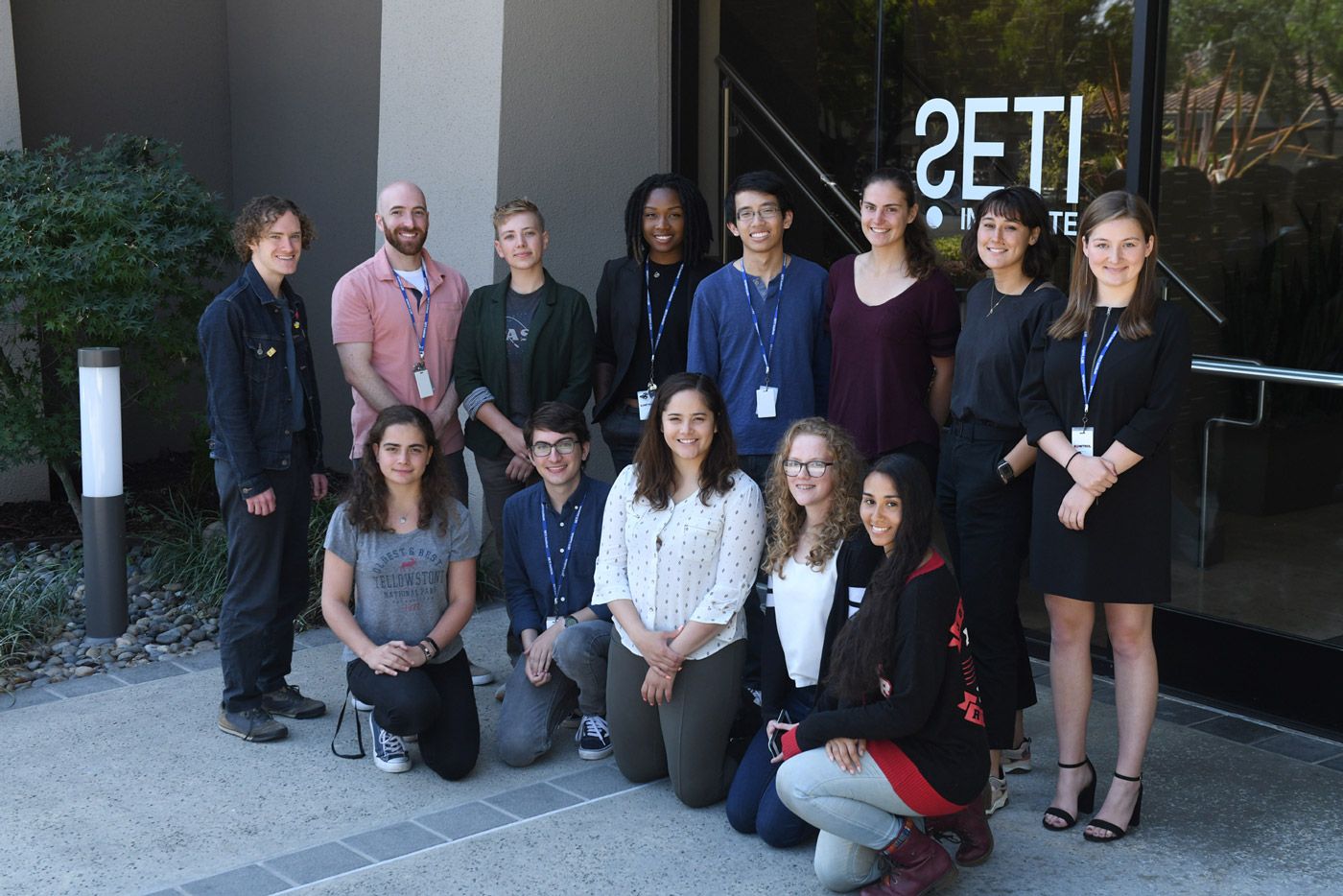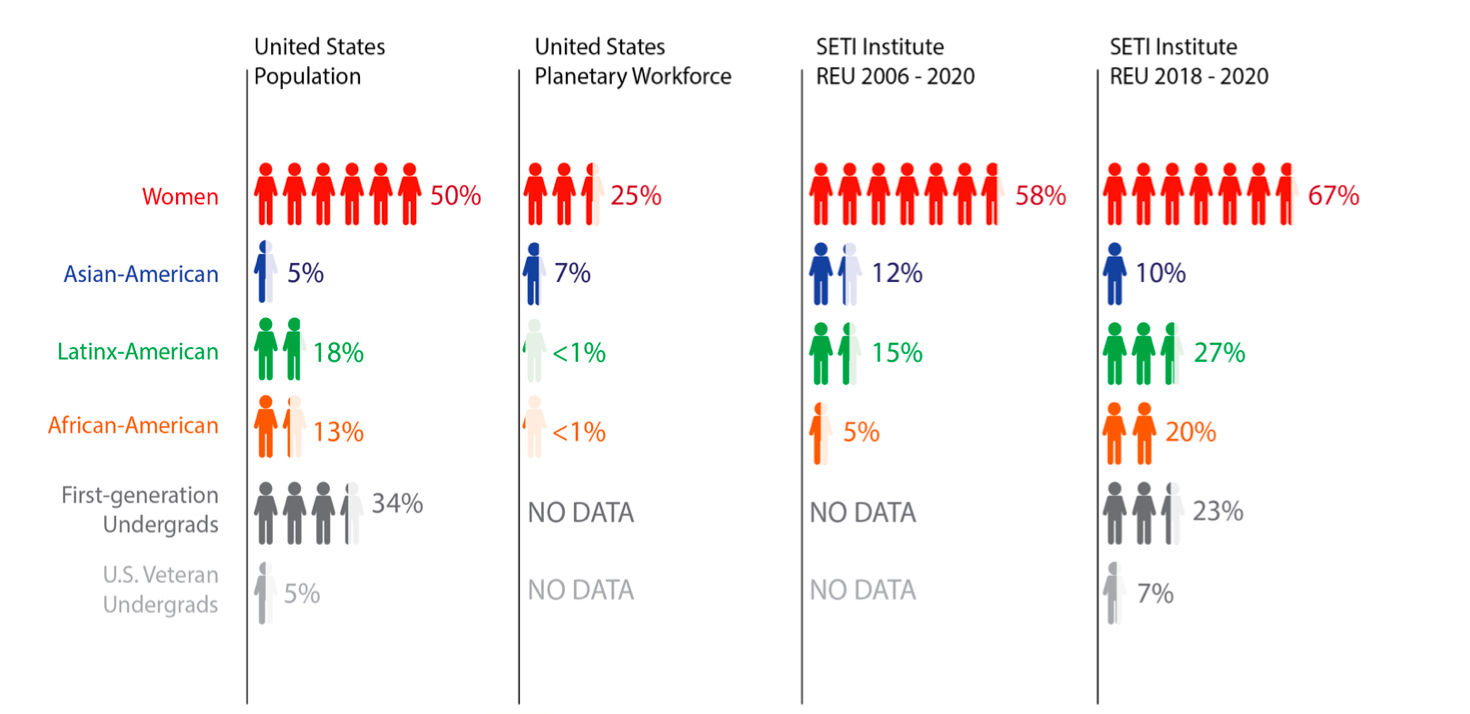
Summer 2023 applications to the SETI Institute's summer internship program are due by February 1, 2023. Click here to apply.
Our program is training the next generation of scientists as well as fostering durable change. The 193 interns we have trained over the program’s 15-year history reflect a strong focus on women and on students from underrepresented communities. The research topics are targeted to a broad array of topics in astronomy and planetary science, with a connecting theme of astrobiology – the study of the living universe.
Our Summer 2021 program included 13 students, with 10 NSF-funded positions supplemented by three positions underwritten by the Moore Foundation. Our 2021 class included 9 women or non-binary students (69%) and 6 minority students (46%), with 7 coming from non-PhD-granting schools (54%) and 4 who were members of the first generation of their family to earn a bachelor’s degree (31%). Of the minority students, 3 were residents of Puerto Rico, who came to us in part due to relationships we have been building with professors at the University of Puerto Rico.

The students took part in a 10-week summer internship in which they participated in a research project, field trips, professional development sessions, and a presentation of the results of their work at the end of the summer. All students successfully completed the program and some presented their results at professional conferences. Thanks to Moore Foundation support, students were housed for the first time at the Navy Lodge, adjacent to NASA Ames Research Center. The Moore Foundation also specifically supported cohort-building activities including meals to kick off and conclude the program (also at other times), a field trip to Lick Observatory, and student-designed T-shirts distributed to program supporters as well as to the students themselves. The Moore Foundation funding also enabled increased support staff activity, including an effort to overhaul our alumni database and improve alumni communications.
Our program includes a one-week field trip during which students receive hands-on experience doing observations with the Allen Telescope Array (ATA) at the Hat Creek Radio Observatory (HCRO), and three days at planetary analog field research sites at Lassen Volcanic National Park (LVNP) while learning about extremophilic biology and geology, the ecosystem level, as well as the adaptation of life to climate change. On a supplemental weekend field trip to the California coast, students got further grounding in planetary geology and work together to solve problems involving life detection, habitability, and how we can recognize non-human intelligent life.





